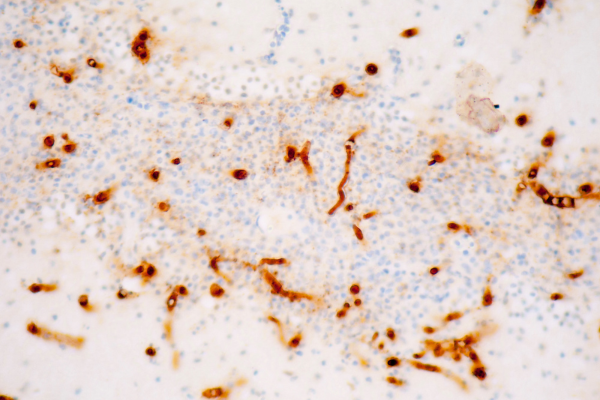Market Forces: Driving Advances in Immunohistochemistry Technologies
Immunohistochemistry (IHC) has emerged as a pivotal technique in the field of pathology and biomedical research. It plays a crucial role in the identification and localization of specific proteins within tissue samples. The continuous advancements in immunohistochemistry technologies are not only expanding our understanding of diseases but also revolutionizing diagnostic and therapeutic approaches.
What is Immunohistochemistry?
Immunohistochemistry is a technique that utilizes antibodies to detect and visualize specific antigens within tissue samples. By employing a combination of immunological and histological methods, IHC allows researchers and pathologists to identify the distribution and expression of proteins in biological tissues. This technique has become an indispensable tool in the study of various diseases, including cancer.
Benefits of Immunohistochemistry:
Precision and Specificity: Immunohistochemistry enables the precise localization of specific proteins, allowing for detailed insights into cellular structures and functions.
Quantitative Analysis: The technique permits quantitative analysis of protein expression levels, aiding in the identification of biomarkers associated with diseases.
Multiplexing Capabilities: Recent advancements in IHC technologies allow for the simultaneous detection of multiple proteins in a single tissue sample, providing a comprehensive understanding of molecular pathways.
Applications of Immunohistochemistry:
Cancer Diagnosis and Prognosis: IHC is widely used in cancer research to identify specific markers that aid in the diagnosis and prognosis of various malignancies.
Neuroscience: In the study of neurodegenerative diseases, IHC helps in identifying protein aggregates and understanding the molecular mechanisms underlying these conditions.
Infectious Diseases: Immunohistochemistry plays a crucial role in identifying infectious agents within tissues, aiding in the diagnosis and understanding of infectious diseases.
When is Immunohistochemistry used?
Immunohistochemistry is employed in various scenarios, including:
Diagnostic Pathology: IHC is commonly used in diagnostic pathology to identify specific markers associated with different diseases.
Research and Drug Development: Researchers use IHC to study the expression of proteins in tissues, facilitating the development of targeted therapies.
Forensic Science: In forensic investigations, IHC can be utilized to identify specific antigens in tissues, contributing to the determination of cause and time of death.
The Future of Immunohistochemistry:
There are continuous innovation in the immunohistochemistry market and its technologies. Key trends include:
Automation: Increasing automation is streamlining IHC workflows, reducing turnaround times, and improving reproducibility.
Digital Pathology Integration: Integration with digital pathology platforms enables the efficient storage, analysis, and sharing of IHC data.
AI and Machine Learning: The incorporation of artificial intelligence and machine learning algorithms enhances the interpretation and analysis of complex IHC results.
Conclusion:
Immunohistochemistry has evolved from a niche technique to a cornerstone in pathology and biomedical research. The continuous advancements in technologies, driven by market forces, are enhancing the precision, efficiency, and scope of IHC applications. As we move forward, the integration of these innovations promises to unlock new dimensions in understanding diseases and improving diagnostic and therapeutic strategies. The future of immunohistochemistry is bright, with ongoing research and technological developments poised to further revolutionize this essential tool in the biomedical field.
Share this post if you find it useful -
-
Facebook
-
Twitter
-
Linkedin
83422+ Reports Delivered
Accurate market data is crucial to a successful business strategy. With an 85% + accuracy in all reports, makes us one of the best and most accurate firms in the world.
Need Customized ReportCall NowRecent Post
-
Predictive Maintenance Market Growth: Key Trends Shaping the Future
-
Exploring the Growth of the Quantum Cryptography Market: Trends and Predictions
-
Blockchain Identity Management: Market Forecasts and Industry Growth
-
Generative AI Market Analysis: Key Players and Innovations
-
The Future of Work: How the AI Market is Transforming Industries

